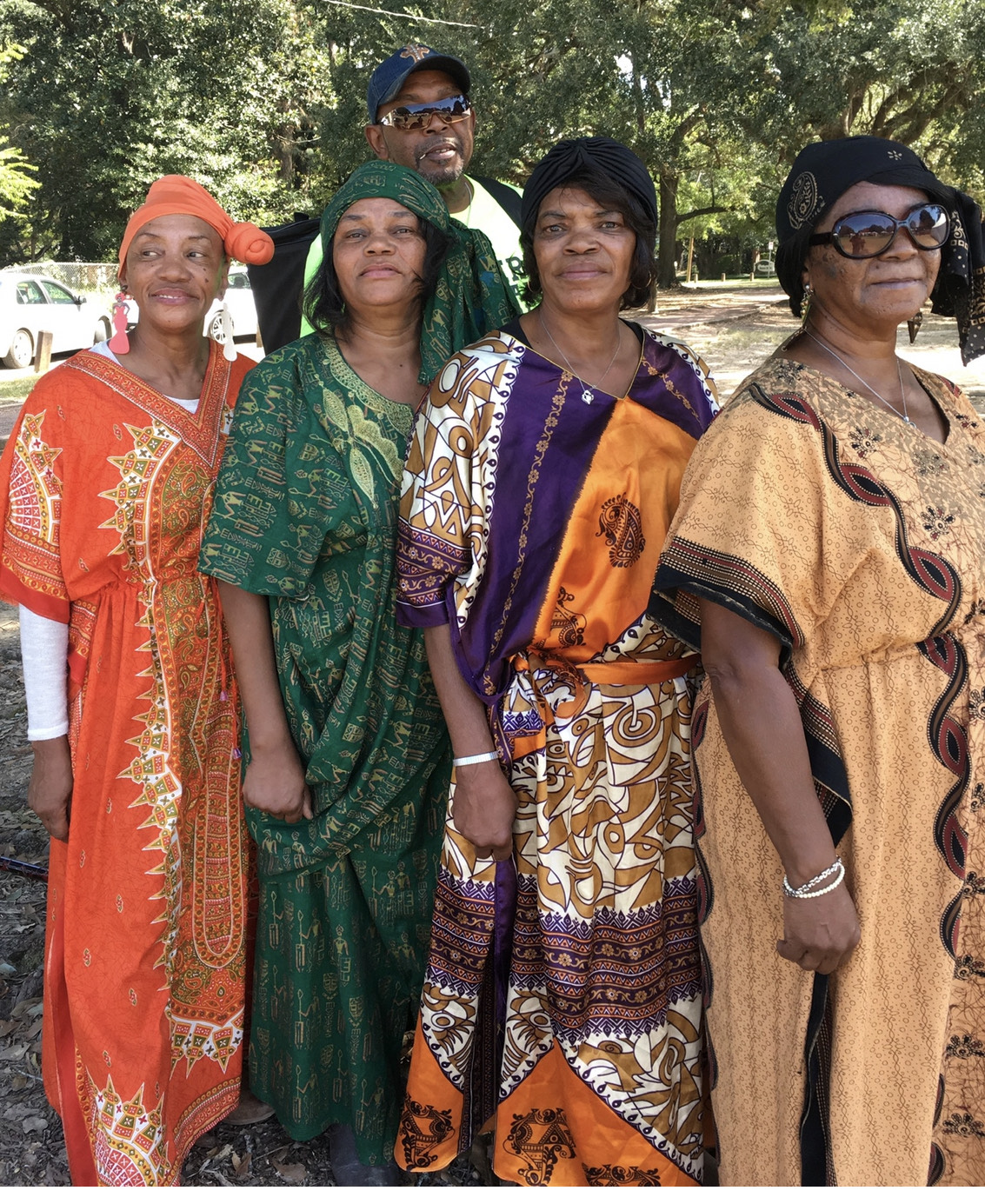By; Nina Murray and Zoe Hebert
NATCHITOCHES – The Broussard Family Juré will be inducted into the Louisiana Folklife Center’s Hall of Master Folk Artists at this year’s Natchitoches-NSU Louisiana Folklife Festival. The festival will be held Saturday, July 22 in air-conditioned Prather Coliseum, located at 220 South Jefferson Street on the Northwestern State University campus in Natchitoches. The festival’s curated showcase of Louisiana folk musicians, food vendors and traditional crafts persons will open at 9 a.m., with live entertainment scheduled for 10 a.m. to 9:30 p.m. The family-oriented festival is fully wheelchair accessible. Children 12 and under are admitted free. Tickets are $10 at the door for all events, or $6 for an evening pass to all events after 5 p.m.
Juré is a type of call-and-response music performed a cappella and is accompanied by hand clapping and dancing. Juré is a musical tradition dating back to the times of slavery, according to group member Millie Broussard. On the plantations, slaves were not allowed to own musical instruments. There were no televisions or telephones at the time, so entertainment and communication were both extremely limited. To make up for the lack of instruments, the Creole slaves used hand claps and foot stomps to create rhythms to sing to. At the time, juré served a dual purpose, keeping the slaves’ energy and spirits up, “a way for people to let loose… like a military cadence,” Millie explained, and as a way to pass along and preserve information.
After the abolishment of slavery, juré became a way of making music during the Lenten season, when it was frowned upon to go to clubs or play instruments. Juré has strong religious roots and was acceptable during Lent. Today, the Broussard Family Juré continue to recognize and praise the presence of God in their lives and his gift of music to their family. Millie said that “We always want to give back the glory to the Giver of the gift.” Their music is at once a celebration of their family’s history and praise to God.
The Broussard Sisters, who are from Opelousas, started doing juré as young children, picking up the songs and dances from their mother. As they grew older, they began to join in on the juré from the outside. Over time, the sisters became part of the juré circles. The oldest in the group was the leader of the call-and-response, and the others would join in. During Lent, the sisters would alternate whose house they visited. They would prepare a big family dinner and perform juré together, changing who they visited every time.
Originally, Millie said, juré was a family tradition. They only started performing publicly six years ago. She explained that people became interested in the music and how it got started. It was beautiful music, so others became curious. The sisters decided to share their music to keep it, and the memory of their ancestors, alive. Millie compared the music to love, saying that “you don’t want to keep it inside, you want to share it.” It’s important to her and her sisters-in-law that they continue the traditions left behind by those who came before them.
Millie has been doing juré alongside her sisters-in-law since she was young, having been their neighbor from an early age. She served as their manager for six years, but she did not officially join the Broussard Family Juré group as a performer until a year ago, when one of the sisters became ill. She was already familiar with the music and dances, so she filled the role. She explained that it made her happy to do juré, especially in such a way that she and her sisters can share it with the world. She believes her ancestors would be proud to see how well-loved and popular their juré has become. Millie said “That was a pastime for them. Now, it’s a passion.” Millie and her sisters love to share the musical tradition which gave their ancestors moments of solace and freedom during times of oppression and slavery, and they are proud to keep the music alive.
The Broussard Family Juré will be performing on the East Stage from 10:15-11:00 a.m. and from 2:45-3:30 p.m.
Support for the festival is provided by grants from the Cane River National Heritage Area, Inc., the City of Natchitoches, the Louisiana Division of the Arts Decentralized Arts Fund Program, the Louisiana Endowment for the Humanities, the Louisiana Office of Tourism, the Natchitoches Historic District Development Commission, the National Endowment for the Arts, the New Orleans Jazz and Heritage Foundation, the Shreveport Regional Arts Council and the State of Louisiana.

